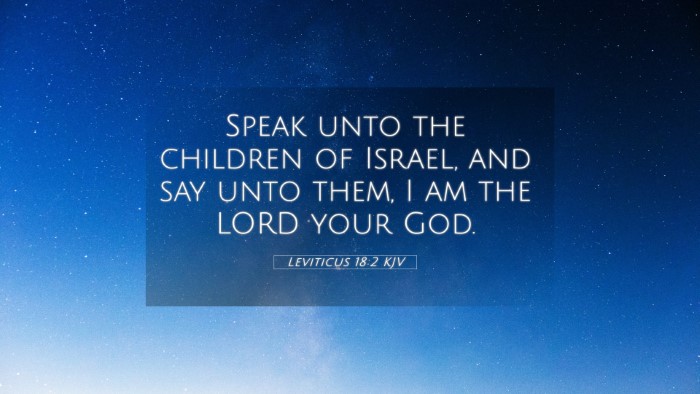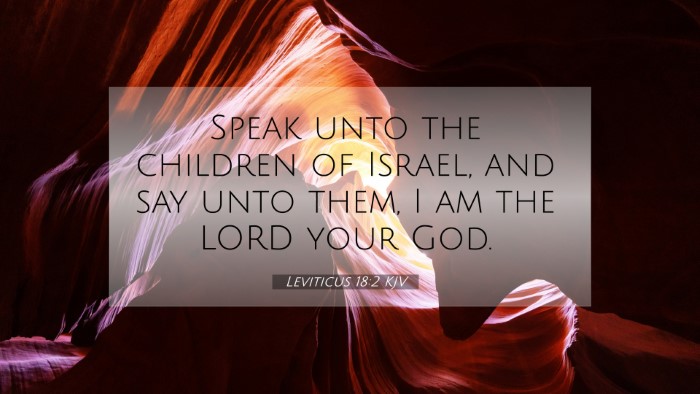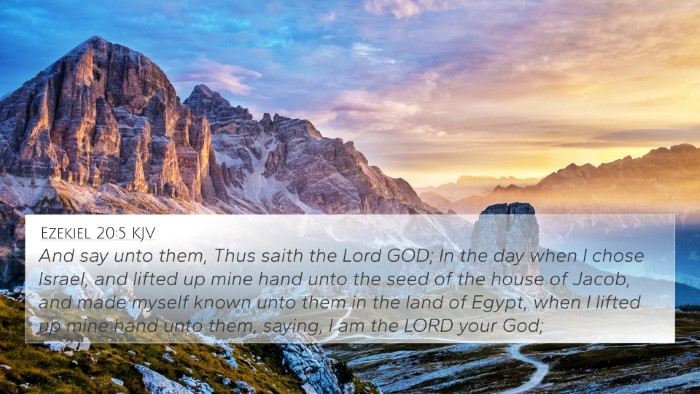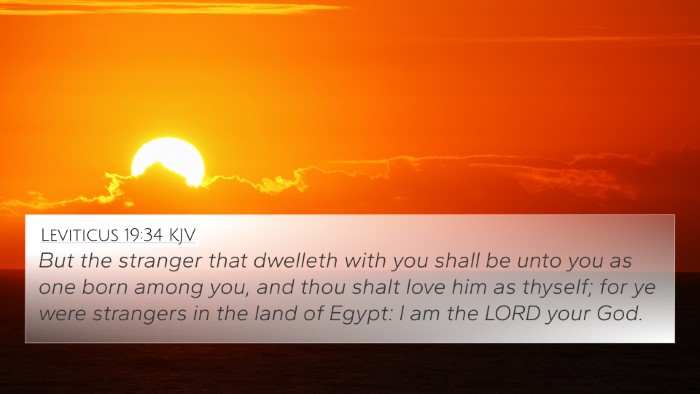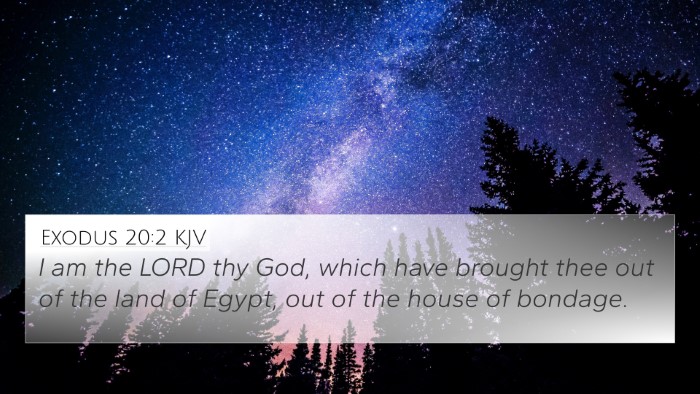Understanding Leviticus 18:2
Leviticus 18:2 states, "Speak unto the children of Israel, and say unto them, I am the LORD your God." This verse serves as an introduction to a significant passage regarding moral and ethical conduct in the context of God’s covenant with Israel. Below is an explanation and interpretation of this verse drawing from notable public domain commentaries.
Contextual Overview
The verse is part of a broader section where God communicates specific laws that govern the moral and social behaviors expected from the Israelites. The statement, "I am the LORD your God," emphasizes God's authority and His relationship with His people.
Commentary Insights
-
Matthew Henry:
Henry emphasizes that this proclamation serves to remind the Israelites of their unique position as God's chosen people. God's identity as their Lord forms the foundation of the subsequent laws He provides. The verse stresses the necessity for obedience to His statutes, which protect His people from the corrupt practices of surrounding nations.
-
Albert Barnes:
Barnes reflects on the implication of God’s declaration of sovereignty. This establishes that Israel is accountable to divine moral standards. His commentary stresses that the laws that follow are not arbitrary but stem from God's character as holy and righteous, meant to guide Israel in their social and personal conduct.
-
Adam Clarke:
Clarke notes that this verse underscores the personal relationship between God and the Israelites. The call to adhere to laws is rooted in the understanding that true worship requires a lifestyle reflective of this covenantal relationship. The phrase "the LORD your God" affirms God's personal involvement in their lives.
Thematic Connections
Leviticus 18:2 establishes a vital connection between divine authority and moral law. Here are various themes connected to this verse:
- Covenantal Relationship: The verse affirms God's personal relationship with His people, highlighting the mutual obligations that arise from this covenant.
- Authority of God: It illustrates God's ultimate authority over Israel, setting the stage for the ethical standards He expects of them.
- Moral Conduct: The following chapters delve into specific behaviors God prohibits, indicating that they are grounded in His nature.
Cross-References
This verse is linked to several significant biblical texts that reinforce its meaning:
- Exodus 20:2-3: "I am the LORD your God, which have brought thee out of the land of Egypt, out of the house of bondage." (Highlighting God's deliverance and authority)
- Deuteronomy 6:4: "Hear, O Israel: The LORD our God is one LORD:" (Affirmation of God's sovereignty)
- Leviticus 19:2: "Speak unto all the congregation of the children of Israel, and say unto them, Ye shall be holy: for I the LORD your God am holy." (Expectations of holiness)
- 1 Peter 1:16: "Because it is written, Be ye holy; for I am holy." (New Testament reinforcement of Old Testament standards)
- Matthew 22:37: "Jesus said unto him, Thou shalt love the Lord thy God with all thy heart, and with all thy soul, and with all thy mind." (Connection to loving God)
- Romans 12:1: "I beseech you therefore, brethren, by the mercies of God, that ye present your bodies a living sacrifice, holy, acceptable unto God, which is your reasonable service." (Call to holiness as an act of worship)
- Joshua 24:14-15: "Now therefore fear the LORD, and serve him in sincerity and in truth..." (Emphasis on commitment to God)
Conclusion
Leviticus 18:2 serves as a foundational statement that not only introduces the moral codes that follow but also stresses the importance of recognizing God’s authority and the implications of their relationship with Him. By understanding and cross-referencing related scriptures, readers can gain deeper insights into the principles of holiness, obedience, and covenant that define the biblical narrative.
Tools for Further Study
To explore these themes and connections more thoroughly, consider utilizing various tools for Bible cross-referencing such as:
- Bible concordance for locating related scripture passages
- Bible cross-reference guide for understanding thematic links within the text
- Cross-reference Bible study for in-depth thematic and contextual analysis
- Bible chain references for tracing biblical themes and concepts throughout the scripture

